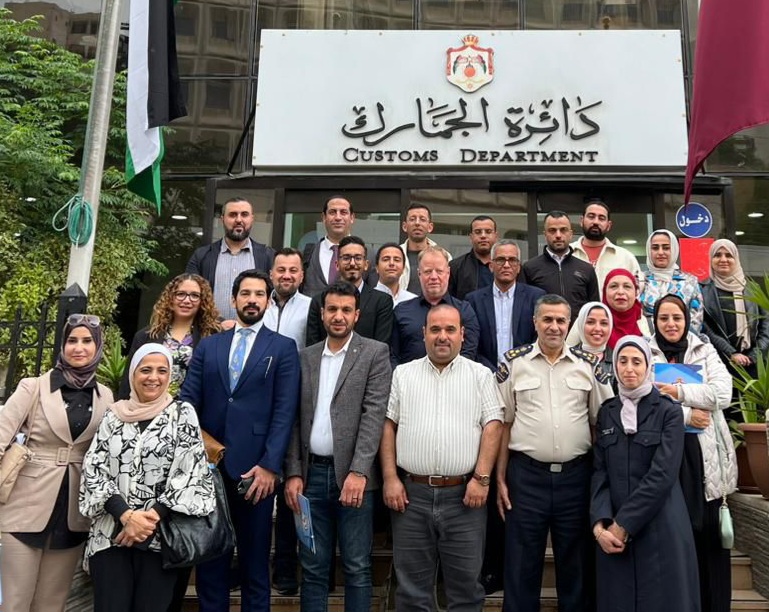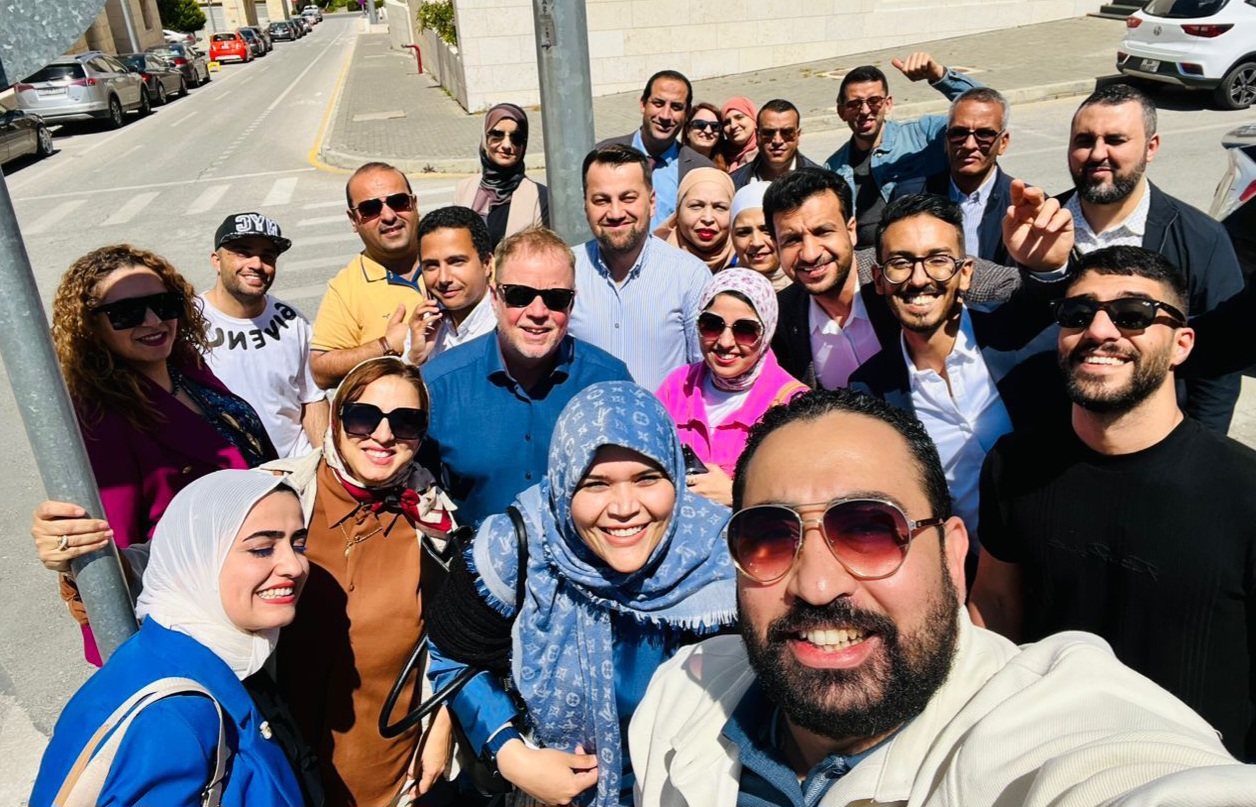In June 2024, civil servants from Morocco, Algeria, Tunisia, Egypt, Iraq, Lebanon, Libya, and Mauritania joined their colleagues from Jordan for the first part of the Shiraka-training on Digital Government. They came to learn about digital service delivery, exchange experiences, and discuss challenges and solutions. Some of the participating countries have been investing in their digital transformation for many years; others have just started their digital development.

Participants of the Shiraka Digital Government training
Challenges
Digital services can be more effective and accessible than traditional ones, where residents need to go to a counter for a birth or property certificate. In Tunisia, more than 135 government apps have been developed in recent years, delivering services such as requesting a copy from the citizen registry, filing a complaint, or requesting information. However, although it was technically possible, in practice these apps were hardly used. Some people now suggest to make the use of these apps legally mandatory. But is this a good solution?
Even in the Netherlands, where almost everyone has access to the internet, up to 25% of the population is hardly able to independently request a digital service from the government. They do not have access to an electronic device, are not digitally proficient or suffer from a physical or mental disability.
Peter van Enk, trainer and adviser at PBLQ: “This is why municipalities keep multiple channels open for their services. If residents are unable to get a service digitally, they can always call or go to the counter in the town hall. A legal obligation for citizens to request government services digitally would exclude vulnerable groups of citizens.’
Trust in the government
Mustafa from Kurdish Iraq says digital services do not work in his country, but for another reason. Residents simply have no trust in the government because of the widespread corruption. Residents would rather walk half a day through the desert to return with a (fully stamped) paper title deed, than have that deed disappear in a government database, because there is no guarantee that the files will not be tampered with. To get digital services off the ground in his country, it is therefore important that corruption is tackled first. However, digital government can also provide tools for this, for example by adopting an ‘Open Government Act’ obliging governments to work more transparently.
Open Government Partnerships
The participants paid a visit to the Jordan Open Source Association (JOSA). This NGO promotes the use of open sources, digital security, and accessibility of government information. They also learned about other, international networks, such as the Open Government Partnership. This network, established in 2011, has 75 members, including Jordan, Morocco, Tunisia and the Netherlands. Members deliver an action plan for a more open and transparent government every two years. These plans are then evaluated and discussed in network meetings, an interesting opportunity for the participants to learn from each other.

Participants of the Shiraka Digital Government training
Other study visits were to the Jordanian Customs office and the National Cyber Security Centre (NCSC).
Training opportunities
The training in Jordan was the first part of the Shiraka-training on Digital Government, funded by the Dutch Ministry of Foreign Affairs and organised by The Hague Academy in cooperation with PBLQ. The participants are now working on the development of their action plans, for which they receive online coaching. In October, the second part of the training will be organised in the Netherlands.
From 2 to 10 December 2024, our open subscription course, Digital Transformation in the Public Sector, is organised in The Hague.
From 4 to 17 September 2024, we organise our Integrity & Anti-Corruption course, which discusses a.o. the role of open government in preventing corruption.
Related courses
We offer a diversity of courses throughout the year. Here are several other courses you might like.

